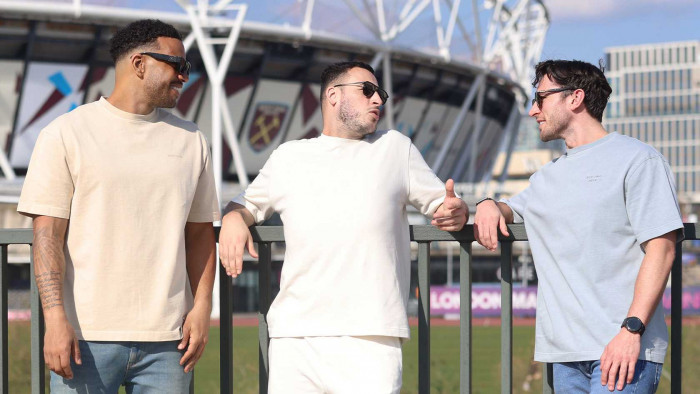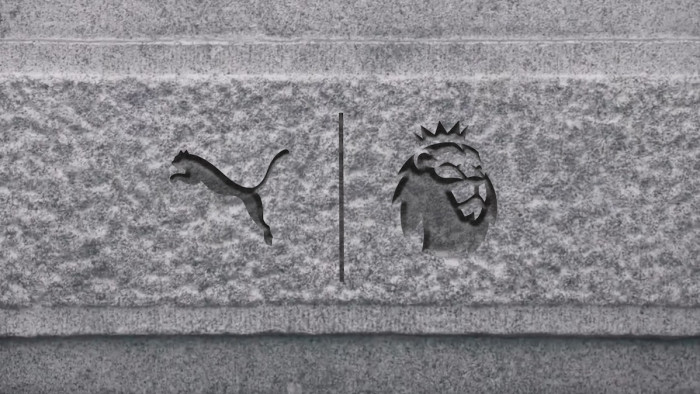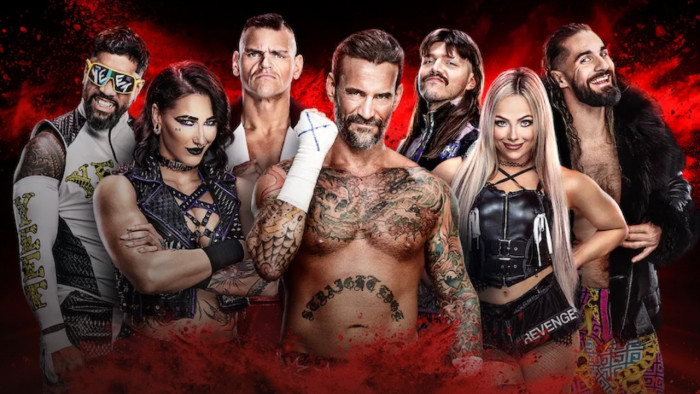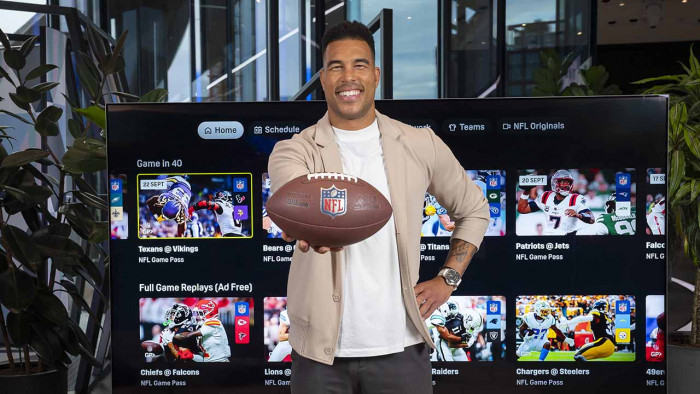After his mortifying choke at this year’s Masters, Rory McIlroy’s golfing future looked shaky. Then came the US Open. Mark Bailey asks him about his stunning turnaround.
The US Masters. Augusta National Golf Club. 10 April 2011. Tenth hole. Rory McIlroy, who began this fourth and final day four shots clear at the top of the leaderboard, hooks the ball into the woods. It ricochets off a pine tree towards a cluster of secluded wooden cabins. He panics. Several missed putts and one gruesome public meltdown later, he finishes 15th. “It is cruel and terrible to see such a talented golfer being destroyed like this,” tweets comedian Stephen Fry.
The US Open. Congressional Country Club. 19 June 2011. Tenth hole. Rory McIlroy, who began this fourth and final day eight shots clear at the top of the leaderboard, strikes his ball towards a minefield of water hazards and bunkers. It lands on the green then trickles within inches of the pin. He grins. Eight holes later, McIlroy has completed the lowest-ever total score in a US Open and become the youngest player to win the trophy since 1923.
How thin the line between heartache and heroism. And what an extraordinary recovery despite the searing sting of public humiliation. By the time McIlroy, 22, meets ShortList a few days after the US Open, he’s been valued at over $1bn in future earnings, with this week’s Open at the top of his hit list. As this unassuming kid with freckles, riotous curls and glasses slumps on to the sofa, it’s hard to comprehend the enormity of his turnaround in fortunes. How did he do it?
“It was just attitude,” explains McIlroy. “Going out that last day at the Masters, I felt that I was protecting, that I was defending… Whereas at Congressional, I just said I was going to go six ahead, seven ahead, eight ahead, nine ahead, 10 ahead. I just kept pushing. You have to have that little bit of… I don’t want to say arrogance… but that confidence, self-belief, cockiness, swagger.”
It was already in him. McIlroy’s agent, Andrew ‘Chubby’ Chandler, told ShortList that McIlroy, aged 12, was “a cocky little so-and-so”. McIlroy laughs: “Yeah, but in many ways it’s something that I worked very hard on not being, and I almost went too far. They always say that nice guys don’t win. So I put my foot down and said that on the golf course, I’m going to be the person I need to be to win.”
“He’s very much his own man,” says Chandler. “I think that all top athletes have it to a degree. It’s not quite stubbornness, but it’s not far off it.”
What did he draw upon to succeed? “I had to be very honest with the people who are closest to me,” says McIlroy, citing his parents Gerry and Rosie, coach Michael Bannon, caddie JP Fitzgerald and Chandler. These raw conversations reminded him what he already knew deep down: how to be the best.
MAKING OF THE MAN
Raised in the port town of Holywood in County Down, Northern Ireland, McIlroy was a child prodigy, hitting a hole-in-one aged nine and becoming junior world champion aged 10. “My first memories of playing golf were with my dad at Holywood Golf Club,” he says. “I’d watch him play while I hit plastic balls with my little plastic clubs.”
The young McIlroy spent hours practising on a putting green in his garden and chipping balls into his mum’s washing machine. “I didn’t see it as practice — I saw it as fun. I always had the belief that I could reach the top.”
As a child, he endlessly analysed footage of Tiger Woods. Today he wows journalists with breakdowns of all Woods’ shots at the 1997 Masters. “Anyone can learn from his desire to improve and hunger to win,” says McIlroy.
After Augusta, then, it’s no surprise that McIlroy ruthlessly dissected his own performance. “The best way to learn is from your mistakes,” he says. He corrected his slumped body language and, after visiting putting guru Dave Stockton, replaced his nervy practice strokes for a quicker, instinctive finishing game. It worked.
Perhaps being a child star gave him the mental steel to stay strong when others doubted him. “I was always the youngest on a team or the youngest in a tournament, playing against older guys,” he remembers. “So to go up against all these greats who I have watched on TV all my life and try to beat them feels quite similar.”
McIlroy wasn’t short on motivation to succeed, either. “His mum and dad had to take on extra jobs to finance his junior career,” says BBC 5 Live golf correspondent Iain Carter. “His dad was cleaning out sports halls and gyms.” McIlroy hasn’t forgotten. “I will never be able to repay my mum and dad for what they did for me. To see their son become a major champion is only a little bit of what I can do.”
His parents can also be credited with giving him the perspective that stopped him from drowning in self-pity after Augusta. “My parents taught me to be a good person,” says McIlroy. “You need to keep perspective. So I might be better than you at golf — but that doesn’t mean I’m a better person.”
Meanwhile, McIlroy’s circle of ‘normal’ friends gives him a worldly outlook his more neurotic rivals lack. How could he sulk when his friends are fretting over the post-university job hunt? “In many ways, I feel as though I’ve taken the easy route,” he says.
He may not be locked away in the nation’s academic centres studying for finals, but when McIlroy and his friends do catch up they’ll have outings to watch Ulster rugby matches, and, naturally, to the local clubs. “I was an only child,” he says. “I’ve always had a large group of good friends.” And, seemingly, they’re not reluctant to help him celebrate. “I try to start on beer to start off slow, but then I tend to get into vodka Red Bulls and Jägerbombs.
“I’m very similar to most other 22-year-old guys. I like to have a night out with the lads. Whenever I’m home I play five-a-side football a couple of times a week. I like going to Nando’s and I enjoy very, very regular things.”
Thanks to his natural charm, he never had to battle his demons alone. “If you were trying to dream up an American sitcom about him, you might call it Everyone Loves Rory,” says Carter. As well as overwhelming public support, golden nuggets of advice were shared by fellow pros, including golf deity Jack Nicklaus. “Pressure is what you live for,” he told McIlroy. Embrace it, don’t fear it.
TIGER WHO?
Confidence. Dedication. Motivation. Perspective. Support. These were the building blocks McIlroy used to reconstruct his career in just 10 weeks. It was a triumph for the Ulsterman’s character as much as his prodigious skills.
“This victory has announced him as a global superstar,” says Carter. “People are going to look at him as the dominant figure in the game, particularly in the absence of Tiger Woods. I’m not sure it’s realistic to expect that.”
McIlroy agrees: “There is no point getting carried away with one win — but as a major champion, it gives you the confidence to know that you can go on and win more.”
Would he like to see Woods back? “It’s maybe easier to win if he’s not around. But you want to compete against the best in the world. I’d like to think that if I was playing my best, I could go up against him and see how I got on.”
Local lore claims that, as a child, McIlroy signed a scorecard “Rory McIlroy: US Open champion”. How many more ambitious autographs McIlroy penned, only he knows. Whether those signatures were presumptuous or prophetic, we’re about to find out.
McIlroy plays in Oakley’s next-generation golf apparel and performance sunglasses; oakley.com/golf
Images: Rex
Latest
Related Reviews and Shortlists










